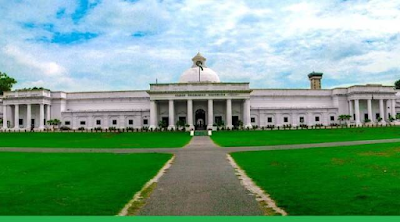The institute is implementing mandatory courses on Artificial Intelligence and Machine Learning (AI/ML), Data Science, and other revolutionary concepts that make its curriculum unique in the country.

After a decade, the Indian Institute of Technology (IIT) Roorkee has updated its undergraduate curriculum. On February 22, this year, the Institute Senate, the highest academic decision-making body, approved the new curriculum. According to IIT-Roorkee, the new curriculum would be available to students admitted to all BTech, BArch, BS-MS, and Integrated MTech programmes.
The institute has introduced concepts that distinguish its curriculum from others in the country, such as mandatory courses in Artificial Intelligence and Machine Learning (AI/ML), Data Science, Indian Knowledge System (IKS), Tinkering and Mentoring, Talent Enhancement Baskets (TEB), Entrepreneurship, Environmental Science and Sustainability (ESSC), Community Outreach (CORE), soft skills, and others.
Furthermore, students will be able to pursue theme-based minor specialisations, design thinking-based projects, and much more.
The curriculum was created with the NEP 2020 standards in mind, according to a statement from IIT-Roorkee. The new curriculum has been built using the philosophy 'STEPS' (Science, Technology, Entrepreneurship, Project-based Education, and Societal commitment) to increase structure flexibility. After great discussion, the institute has opted to focus on students' general growth based on their interests rather than forcing them to take pre-programmed courses.
The number of credits necessary for core courses has been reduced, but the number of elective programme courses, humanities and social sciences, community outreach, open elective courses, entrepreneurship, and other components has increased.
The curriculum allows students to pursue a minor specialisation in another department, graduate with honours in their parent department, earn two degrees (Bachelor and Master), study one more year, or exit with a four-year BS degree in the five-year BS-MS programmes.
In the new curriculum, students in all programmes will spend their first semester learning soft skills, mathematics, physics, computer programming, tinkering and mentorship, and engineering science.
The soft skills course will help students improve their general personality, including communication, presentation, and group discussion skills. Tinkering and mentorship have been introduced to foster an interest in project-based learning and raise understanding of key professional/ethical/career development issues.
An obligatory course will introduce all undergraduate students to the relevance of the traditional Indian knowledge system. The course will provide in-depth knowledge of the Indian knowledge system's age-old contributions and their relevance in modern technologies and technology-driven society. A group of professors with interdisciplinary research backgrounds will teach the course.
IIT-R says that the Talent Enhancement Basket is the first of its kind in the country. Students will be able to develop or hone specialist abilities in their fields of interest. This will allow the pupils to put their skills to use.
The new curriculum allows students to choose between projects, entrepreneurship, and internships. Different Environmental Science and Sustainability courses will be taught with the goal of increasing knowledge of environmental concerns related to many disciplines and preparing students to identify solutions to environmental issues in their respective fields.
Various departments are gathered together to encourage multi-stakeholder collaborations to achieve sustainable consumption and industrialization, as well as to foster innovation in accordance with the United Nations' 17 Sustainable Development Goals.
A course on Community Outreach (CORE) will also be required for the degree at IIT Roorkee. As part of this course, students will participate in an individual or group project focused on societal issues in the surrounding communities. This will strengthen the institute's social ties with society and instill a sense of social responsibility.

